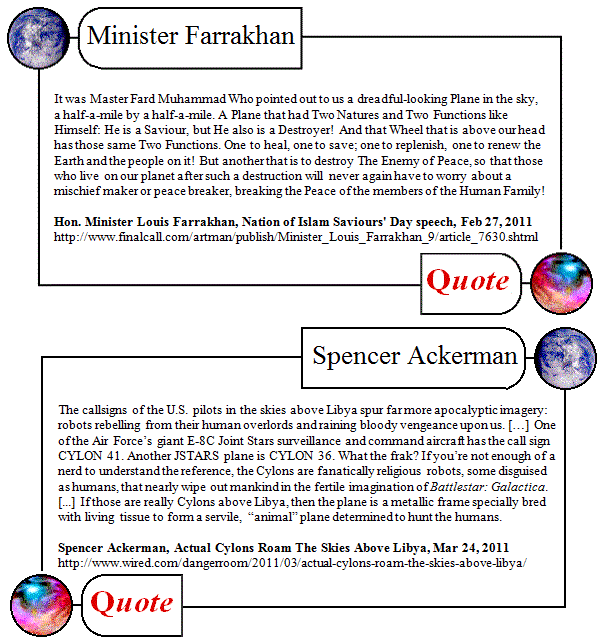Soon soon coming of the Mahdi?
Monday, March 28th, 2011[ by Charles Cameron ]
*
Okay, I’d say things are heating up. Here’s a screen grab from what we are led to believe is a recent video from Iran, made with government backing as described below the fold.
This does not bode well…
*
The Christian thriller novelist Joel Rosenberg (author of The Twelfth Imam) has a new blog post up, in which he cites a Christian Broadcasting Network story — which in turn refers to a video posted with some introductory materials on his blog by Reza Kahlili (author of A Time to Betray: The Astonishing Double Life of a CIA Agent Inside the Revolutionary Guards of Iran).
According to Kahlili, who has also posted the full video to YouTube, it is a half-hour long program sponsored by the Basij militia and the Office of the President of Iran, affirming the soon-return of the Mahdi.
And containing “inflammatory language” about King Abdullah of Saudi Arabia (see subtitle above)? Can I say that?
For what it’s worth, the supposed “hadith” about the death of King Abdullah is discussed in some detail at The Wake-Up Project, so it’s definitely “in the air” — but I don’t recall seeing any references to it in Abbas Amanat, Abdulazziz Sachedina, or any of the lists of Signs of the Coming I’ve read, so my suspicion is that this is an opportunistic addition to the corpus rather than a reliable hadith.
Which brings me to my last point:
I am not posting these materials to encourage panic — that’s what terrorism strives for, and it is the very opposite of what I would wish to see. If anything, these stirrings of Mahdist sentiment should make us more careful and attentive to the serious scholarly work that has been done in this area. Jean-Pierre Filiu‘s book Apocalypse in Islam, which I reviewed for Jihadology, would be an excellent place to start.
*
There are plenty of other things going on that I would love to track, blog about or comment on these days, but for the next while I shall try to restrain myself and focus in on this particular issue and its ramifications:
- Contemporary Shi’ite Mahdist expectation
- The Iranian nuclear program in the light of Mahdist expectation
- Iranian attempts to use Mahdism to unite Sunni and Shi’a
- Mahdism and jihad
- The role of Khorasan in Mahdist rhetoric
- Christian apocalyptic responses to Mahdist stirrings
- Joel Rosenberg‘s book, The Twelfth Imam
- Joel Richardson‘s book, The Islamic Antichrist
- Glenn Beck‘s increasing focus on Iranian Mahdism
- The increasing influence of Islamic and Christian apocalyptic on geopolitics
This is a pretty complex and potent mix of topics, and while I’ll post some individual pieces of the puzzle as I see it, I shall also try to put together a “bigger picture” piece with the whole mosaic laid out.
*
Apart from that, I remain deeply committed to questions of chivalry and peace-making, and will continue to monitor developments and write what I can on those topics as time allows…


 itself and it’s 20th century struggle for survival as a military branch of service against the bureaucratic machinations of the Army, the Navy and the ill-will of several presidents, a struggle in which Brute Krulak played a key part.
itself and it’s 20th century struggle for survival as a military branch of service against the bureaucratic machinations of the Army, the Navy and the ill-will of several presidents, a struggle in which Brute Krulak played a key part.





